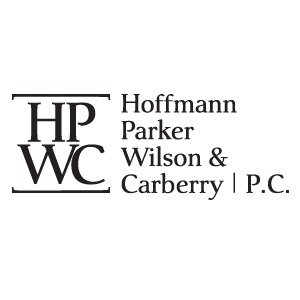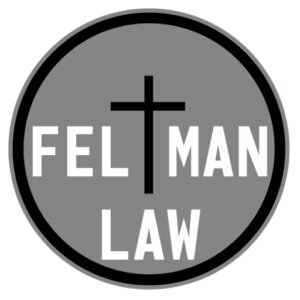Best FDA Law Lawyers in Colorado
Share your needs with us, get contacted by law firms.
Free. Takes 2 min.
Or refine your search by selecting a city:
List of the best lawyers in Colorado, United States
About FDA Law in Colorado, United States
FDA law refers to the body of federal and state regulations that govern the approval, manufacture, distribution, marketing, and use of food, drugs, medical devices, cosmetics, tobacco products, and related goods. The United States Food and Drug Administration (FDA) is the primary federal agency responsible for enforcing these regulations to protect public health and ensure consumer safety. In Colorado, businesses and individuals involved in these industries must comply with a combination of FDA rules and state-specific laws. This legal landscape affects manufacturers, distributors, retailers, healthcare providers, and even consumers.
Why You May Need a Lawyer
There are numerous situations in which you might need legal guidance related to FDA law in Colorado. Examples include:
- Navigating the process of bringing a new food, drug, supplement, or medical device to market while ensuring full regulatory compliance.
- Responding to or challenging FDA warning letters, recalls, or enforcement actions.
- Defending against civil or criminal penalties related to FDA regulation violations.
- Addressing labeling, advertising, and promotional practices to avoid allegations of misbranding or false advertising.
- Dealing with product liability claims concerning FDA-regulated products.
- Guiding compliance with special rules for dietary supplements, cannabis or hemp-derived products, and cosmetics, which may be subject to both Colorado and federal requirements.
- Handling inspections, audits, or investigations initiated by the FDA or local authorities.
- Managing product recalls, withdrawals, or reporting adverse events as required by law.
Legal counsel helps prevent costly mistakes and protects your interests throughout the regulatory process, especially when federal and state rules intersect or conflict.
Local Laws Overview
While the FDA sets federal standards that apply nationwide, Colorado has its own laws and agencies overseeing food, drugs, medical devices, cosmetics, and related fields. This includes:
- The Colorado Department of Public Health and Environment (CDPHE) regulates food safety, dairy, and manufactured foods at the state level.
- The Colorado State Board of Pharmacy oversees pharmacy practice standards and enforcement of relevant drug laws.
- Colorado's Marijuana Enforcement Division governs medical and recreational cannabis-related rules, which differ from federal policy.
- Colorado has integrated certain FDA standards into state law but may impose additional requirements depending on the product category.
- Enforcement powers are shared between state and federal agencies, and businesses must comply with both to operate lawfully.
- Colorado law can be more permissive in areas such as cannabis and some food additives, but federal restrictions still generally apply and must be considered.
It is crucial to understand how Colorado’s specific statutes interact with federal regulations to ensure full compliance, especially for businesses seeking to expand or operate across state lines.
Frequently Asked Questions
What does FDA law cover in Colorado?
FDA law covers the development, manufacturing, labeling, marketing, distribution, and recall of a wide range of products including foods, drugs, medical devices, cosmetics, dietary supplements, and tobacco products. In Colorado, both federal and state agencies enforce these regulations.
Does Colorado have stricter rules than the FDA?
In some cases, yes. For example, Colorado has additional rules for industries like cannabis, dairy, and certain foods. In other areas, the state adopts or references federal FDA standards. Businesses must comply with the more restrictive provisions to avoid penalties.
Are CBD and hemp products legal under FDA law in Colorado?
Colorado allows the manufacture and sale of CBD and hemp-derived products. However, the FDA restricts adding CBD to foods or marketing it as a dietary supplement. Businesses must carefully navigate both federal and state regulations to operate lawfully.
What should I do if I receive an FDA warning letter?
Seek legal counsel immediately. A lawyer can help you understand the allegations, prepare a comprehensive response, correct potential violations, and interact with both the FDA and state agencies to resolve the issue.
How do I bring a new food or drug to market in Colorado?
You must comply with FDA premarket approval processes and any applicable state registration, licensing, and inspection requirements. This includes preparing complete documentation, ensuring labeling accuracy, and meeting manufacturing standards.
What is the penalty for violating FDA law in Colorado?
Penalties may include fines, product seizures, recalls, license suspensions, and even criminal charges. State authorities may impose additional sanctions, especially if public health is at risk.
Can I market a medical device without FDA clearance in Colorado?
No. Medical devices must typically receive FDA clearance or approval before being sold or marketed. State rules may require additional reporting or licensing for certain devices.
What agencies regulate food safety in Colorado?
At the state level, the Colorado Department of Public Health and Environment and local health departments oversee food safety. The FDA provides federal standards, and federal and state agencies often collaborate on inspections and enforcement.
Is cannabis regulated by the FDA in Colorado?
While cannabis is legal in Colorado, it remains federally illegal and is not regulated by the FDA for most purposes. The Colorado Marijuana Enforcement Division handles state oversight, but certain CBD and hemp policies may fall under the FDA’s purview.
How can I ensure my labeling complies with both Colorado and FDA standards?
Consult with a legal professional who specializes in FDA and Colorado law. Accurate labeling must meet both federal and state requirements related to ingredients, nutrition facts, health claims, and allergen statements.
Additional Resources
Those seeking further information or legal guidance can turn to the following resources:
- Food and Drug Administration (FDA): The primary federal source for regulations, guidance, and enforcement actions relating to FDA-regulated products.
- Colorado Department of Public Health and Environment (CDPHE): Oversees state-level food safety, product recalls, and related regulatory activities.
- Colorado State Board of Pharmacy: Provides information and oversight for pharmacy practices and pharmaceutical regulation.
- Colorado Marijuana Enforcement Division: Regulates cannabis businesses within the state.
- Colorado Bar Association: Provides referrals to attorneys specializing in FDA law and regulatory compliance.
- Local law libraries or university legal clinics: These organizations may offer self-help resources or limited free consultations.
Next Steps
If you believe you need legal assistance with an FDA law matter in Colorado, consider the following steps:
- Gather any relevant documents, notices, or correspondence from state or federal agencies.
- Identify the core issues or questions you have about compliance, enforcement, or business operations.
- Contact a qualified attorney who specializes in FDA law and is familiar with Colorado’s regulations. Look for someone with experience in your specific industry or product area.
- Schedule a consultation to discuss your situation, ask about their experience, and determine how they can help you achieve compliance or resolve disputes.
- Stay informed by regularly checking for updates in both federal and state regulations that may affect your business or personal responsibilities.
Taking these steps ensures that your operations remain compliant, minimizes legal risks, and positions you to respond efficiently to any regulatory challenges you may face in Colorado.
Lawzana helps you find the best lawyers and law firms in Colorado through a curated and pre-screened list of qualified legal professionals. Our platform offers rankings and detailed profiles of attorneys and law firms, allowing you to compare based on practice areas, including FDA Law, experience, and client feedback.
Each profile includes a description of the firm's areas of practice, client reviews, team members and partners, year of establishment, spoken languages, office locations, contact information, social media presence, and any published articles or resources. Most firms on our platform speak English and are experienced in both local and international legal matters.
Get a quote from top-rated law firms in Colorado, United States — quickly, securely, and without unnecessary hassle.
Disclaimer:
The information provided on this page is for general informational purposes only and does not constitute legal advice. While we strive to ensure the accuracy and relevance of the content, legal information may change over time, and interpretations of the law can vary. You should always consult with a qualified legal professional for advice specific to your situation.
We disclaim all liability for actions taken or not taken based on the content of this page. If you believe any information is incorrect or outdated, please contact us, and we will review and update it where appropriate.
Browse fda law law firms by city in Colorado
Refine your search by selecting a city.












